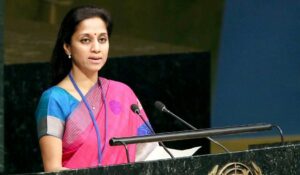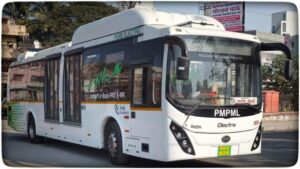Lok Sabha Election 2024 Results: Seat Distribution Reveals Fragmented Political Landscape

Amit Singh
Pune, 05 June 2024: The outcome of the Lok Sabha elections 2024 has painted a picture of a fractured political landscape, with no single party securing a decisive majority. The seat distribution reflects the diverse electoral preferences of the Indian electorate, showcasing a spectrum of regional, national, and independent players vying for representation in the Parliament.
The Bharatiya Janata Party (BJP) emerged as the largest party, clinching 240 seats, a significant mandate yet falling short of an outright majority. Despite this, the BJP’s leadership role within the National Democratic Alliance (NDA) remains pivotal, shaping the trajectory of coalition politics in the country.
In a notable resurgence, the Congress party secured 99 seats, consolidating its position as the principal opposition party. The party’s performance, though falling short of expectations, underscores its enduring presence on the national stage and its capacity to mobilize support across diverse constituencies.
Regional players also made their mark, with the Samajwadi Party (SP) securing 37 seats, followed closely by the Trinamool Congress (TMC) with 29 seats and the Dravida Munnetra Kazhagam (DMK) with 22 seats. These parties’ strong showing reflects their deep-rooted influence in their respective regions and their ability to resonate with local sentiments.
The Telugu Desam Party (TDP), Janata Dal United (JDU), and Shiv Sena garnered 16, 12, and 9 seats respectively, further diversifying the political landscape and highlighting the significance of regional alliances in shaping the contours of governance.
Additionally, smaller parties and independent candidates played a crucial role in the electoral dynamics, collectively clinching a notable share of seats. With 7 seats secured by independent candidates and various parties such as the Lok Janshakti Party, Yuvajana Sramika Raithu Congress Party, and Rashtriya Janata Dal each securing 5, 4, and 4 seats respectively, the parliamentary arena reflects a mosaic of voices and agendas.
As the dust settles on the electoral battlefield, attention now turns to the intricacies of coalition negotiations and post-poll alliances. With no single party commanding a clear mandate, the road ahead is fraught with challenges and opportunities, underscoring the need for political pragmatism and consensus-building to ensure stable governance and address the pressing issues facing the nation.








